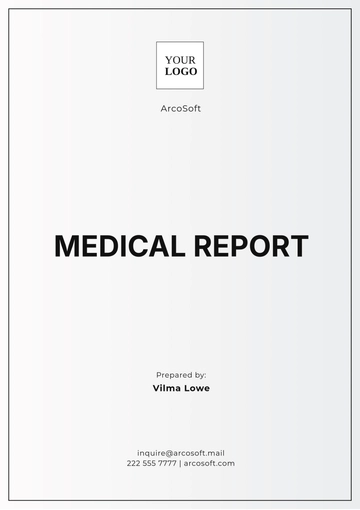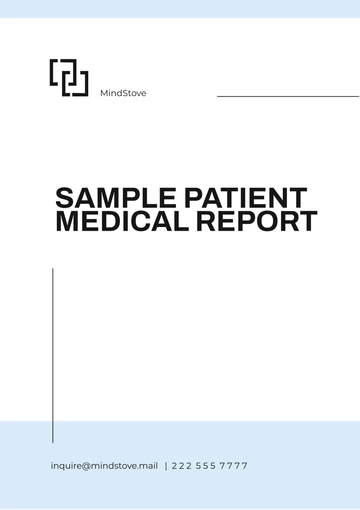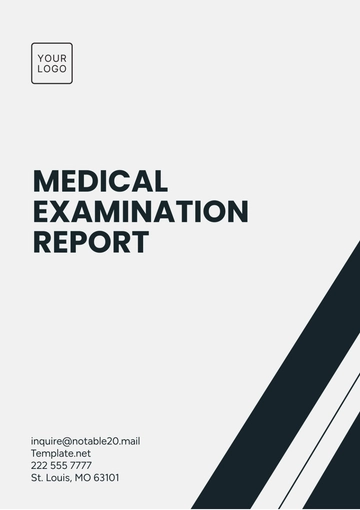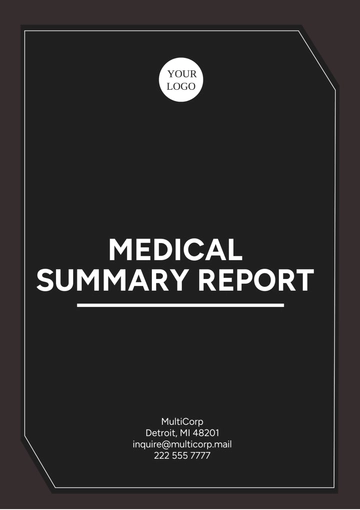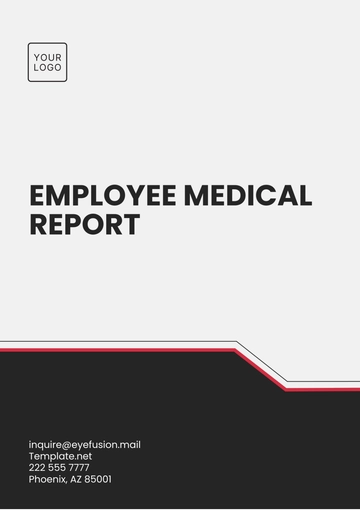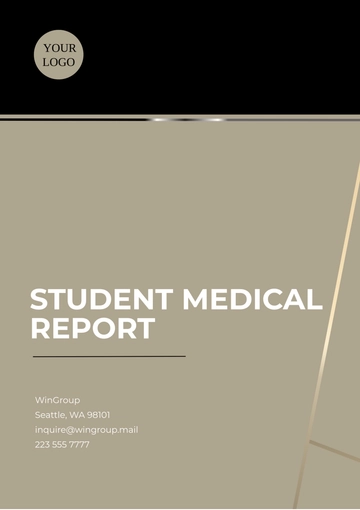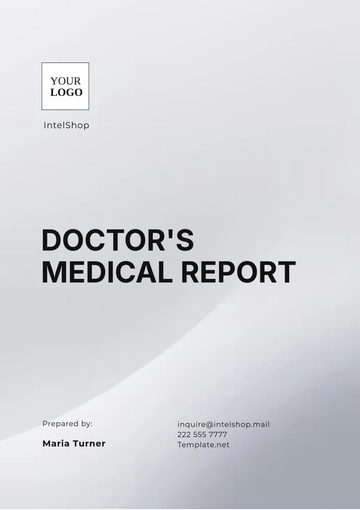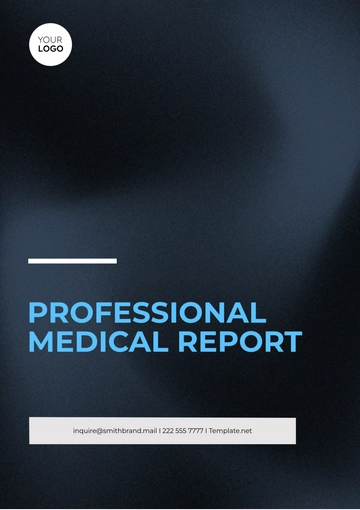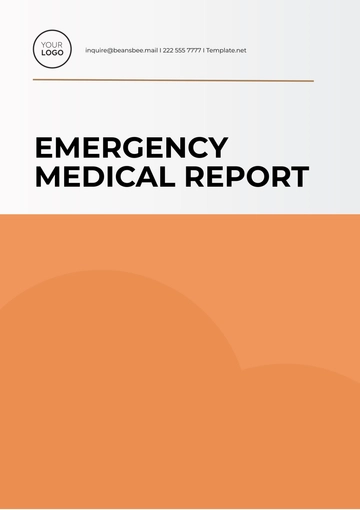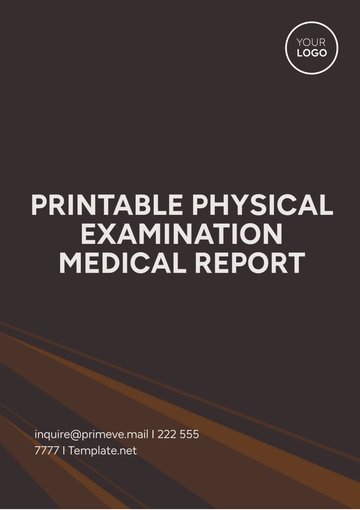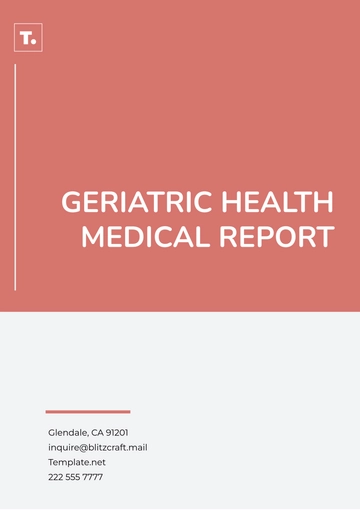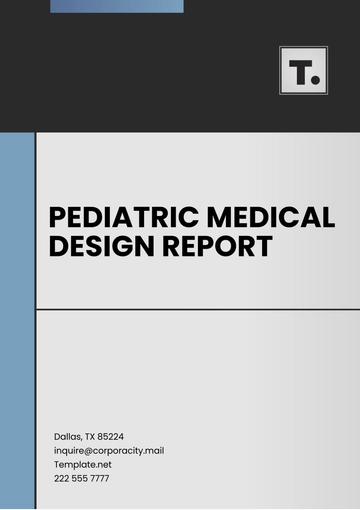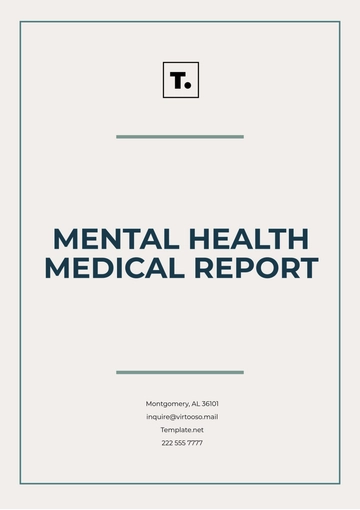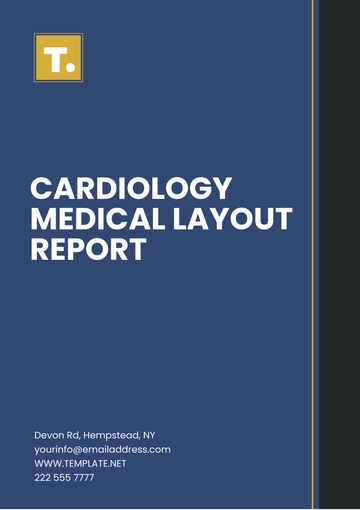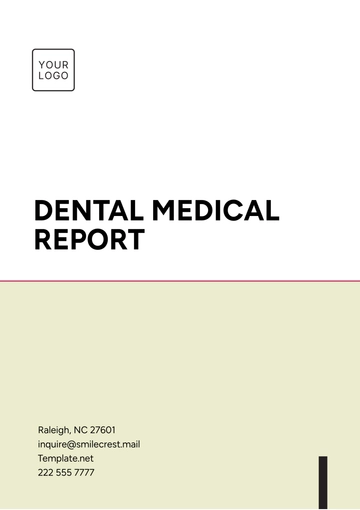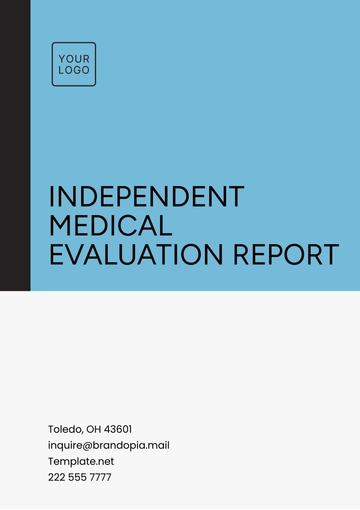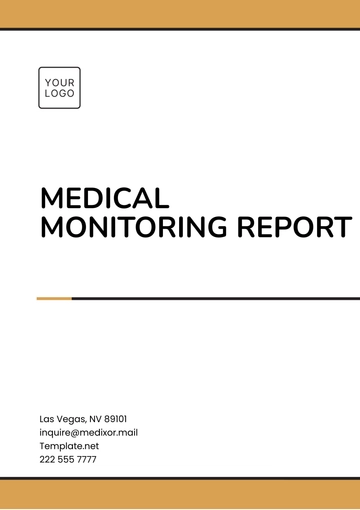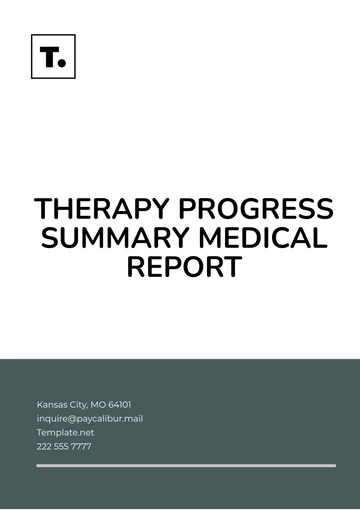Free Blank Geriatric Health Medical Report
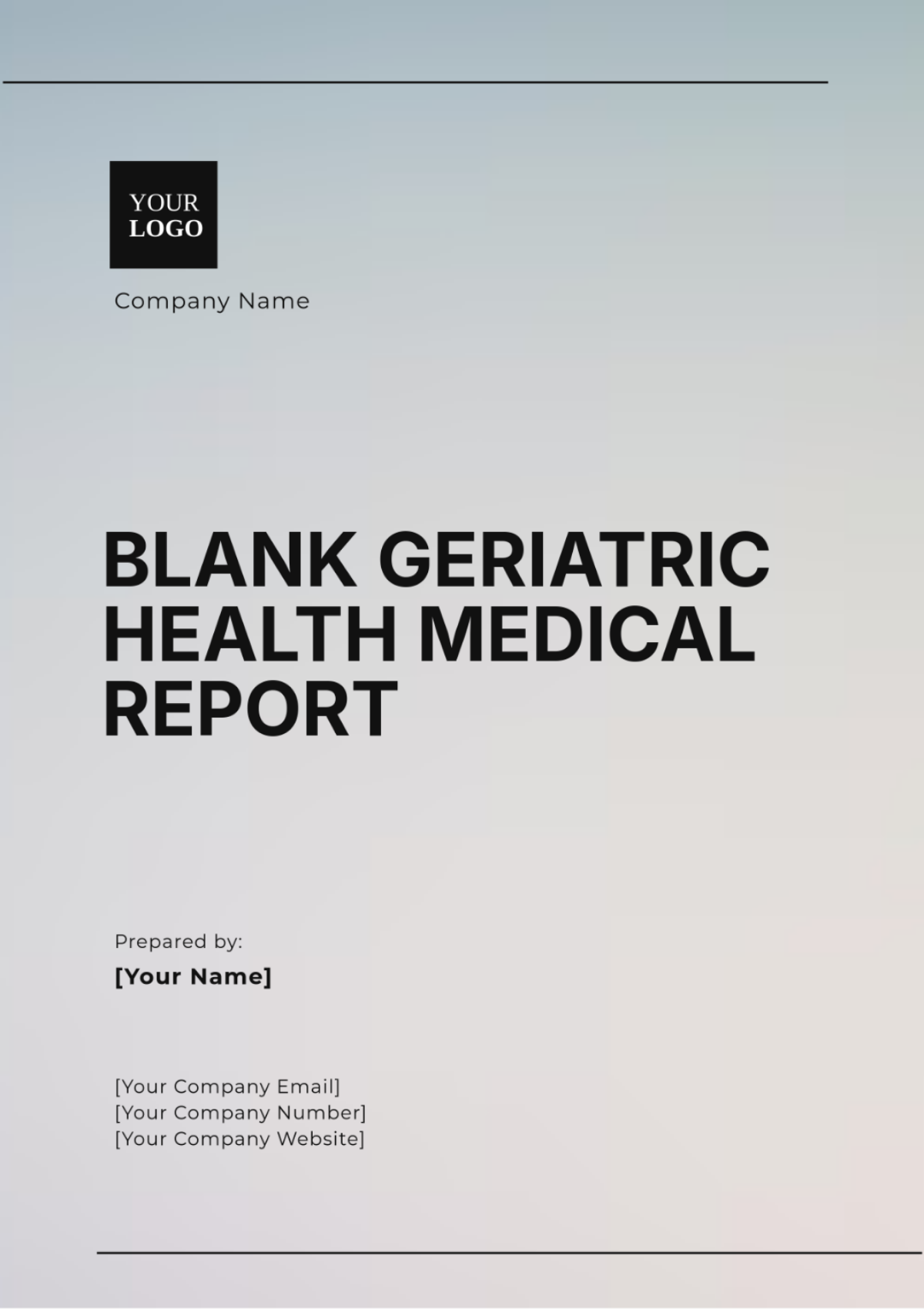
Patient Information
Patient Name: | [Your Name] |
Patient ID: | 123456789 |
Date of Birth: | January 1, 2050 |
Gender: | Female |
Contact Information: | 123-456-7890 |
Medical History
Past Medical History:
Hypertension: Diagnosed in 2010, well-controlled with medication.
Type 2 Diabetes Mellitus: Diagnosed in 2015, managed with Metformin and lifestyle modifications.
Osteoarthritis: Diagnosed in 2018; primarily affects knees and hands.
Hyperlipidemia: Diagnosed in 2019, treated with statins.
Depression: History of mild depression, treated with counseling and occasional use of sertraline.
Family Medical History:
Mother: Heart Disease (passed at age 82)
Father: Diabetes (passed at age 75)
Siblings: One sister with osteoporosis
Medication List:
Lisinopril: 10 mg once daily for hypertension
Metformin: 500 mg twice daily for diabetes
Ibuprofen: 400 mg as needed for pain
Atorvastatin: 20 mg once daily for hyperlipidemia
Sertraline: 50 mg once daily for depression
Allergies:
Penicillin: Rash and itching
Aspirin: Gastrointestinal upset
Assessment Information
Chief Complaint:
“I’ve been feeling more tired than usual and have some pain in my knees. I’ve also noticed some swelling.”
History of Present Illness:
Mr. Doe reports increased fatigue over the past two months, which he attributes to disrupted sleep patterns and pain in his knees. He describes the knee pain as a 6/10 in intensity, worsening with prolonged standing and improving with rest. Denies fever, chills, or recent weight loss, but notes increased thirst and urination.
Review of Systems:
General: Increased fatigue, no weight loss
Cardiovascular: Occasional palpitations, denies chest pain, shortness of breath on exertion
Respiratory: No cough or wheezing, occasional mild dyspnea with exertion
Gastrointestinal: Normal appetite, regular bowel movements, no nausea or vomiting
Genitourinary: Increased urination, nocturia twice a night
Musculoskeletal: Knee pain and swelling, no recent injuries, mild stiffness in the morning
Neurological: No dizziness, headaches, or visual disturbances
Psychiatric: Mild depressive symptoms, no suicidal ideation
Physical Examination
Vital Signs:
Blood Pressure: 130/85 mmHg (sitting)
Heart Rate: 72 bpm (regular rhythm)
Respiratory Rate: 18 breaths/min (unlabored)
Temperature: 98.6°F
General Appearance:
Alert, cooperative, overweight (BMI: 28), dressed appropriately, appears well-nourished.
Cardiovascular Examination:
Heart sounds: Regular rhythm, no murmurs, good peripheral perfusion.
Respiratory Examination:
Clear lung fields on auscultation, no wheezes or crackles.
Abdominal Examination:
Soft, non-tender, no organomegaly, bowel sounds present.
Neurological Examination:
Alert and oriented to person, place, and time. Cranial nerves II-XII intact. Reflexes: 2+ throughout.
Musculoskeletal Examination:
Knees: Bilateral mild swelling, tenderness on palpation, reduced range of motion (flexion limited to 90 degrees). Crepitus noted with movement.
Hands: Mild stiffness and swelling in the distal joints, no deformities.
Gait: Slightly antalgic with increased pain on weight-bearing.
Functional Assessment
Activities of Daily Living (ADLs):
Bathing: Independent, but reports difficulty bending to wash feet.
Dressing: Needs assistance with putting on socks and shoes due to knee pain.
Eating: Independent; enjoys cooking simple meals.
Instrumental Activities of Daily Living (IADLs):
Cooking: Independent; prefers easy recipes.
Cleaning: Needs assistance with vacuuming and heavy lifting.
Shopping: Independent; prefers online shopping to avoid physical stores.
Cognitive Function:
No apparent memory deficits. Able to recall recent and past events. Engages in puzzles and reading to stimulate cognitive function.
Diagnostic Tests
Laboratory Results:
HbA1c: 7.2% (target <7%)
Lipid Panel: Total cholesterol: 190 mg/dL, LDL: 110 mg/dL, HDL: 45 mg/dL, Triglycerides: 150 mg/dL.
Complete Blood Count (CBC): Within normal limits, no anemia.
Imaging Studies:
X-ray of knees: Mild osteoarthritis changes with joint space narrowing, no significant effusion.
Other Relevant Tests:
Electrocardiogram (EKG): Normal sinus rhythm, no ST changes.
Diagnosis
Fatigue likely secondary to chronic disease management and possible sleep disturbance.
Osteoarthritis of the knees, bilateral.
Type 2 Diabetes Mellitus, poorly controlled; consider adjustment of diabetes management.
Mild depressive symptoms requiring further evaluation.
Plan of Care
Treatment Recommendations:
Continue current medications; consider adjusting Metformin dosage for better glycemic control.
Initiate physical therapy focused on strengthening and range of motion exercises for the knees.
Schedule a sleep study to evaluate for possible sleep apnea due to increased daytime fatigue.
Referrals to Specialists:
Referral to a rheumatologist for osteoarthritis management.
Referral to a dietitian for personalized dietary guidance focused on diabetes management.
Follow-up Appointment Schedule:
Schedule follow-up in 3 months for reassessment of diabetes control and knee pain management.
Lifestyle Modifications:
Encourage regular low-impact exercise (e.g., walking, swimming) for joint health and blood sugar control.
Dietary modifications: increase fiber intake, reduce refined sugars, and monitor carbohydrate intake.
Notes and Observations
Mr. Doe’s daughter expresses concern about his mobility and overall health; recommend considering home health services for support.
Discussed importance of social engagement to help alleviate depressive symptoms; suggest joining a local senior activity group.
- 100% Customizable, free editor
- Access 1 Million+ Templates, photo’s & graphics
- Download or share as a template
- Click and replace photos, graphics, text, backgrounds
- Resize, crop, AI write & more
- Access advanced editor
Our Blank Geriatric Health Medical Report Template from Template.net is designed to meet the unique needs of older patients. This editable and customizable template facilitates detailed health assessments for geriatric care. Adapt it for individual cases, ensuring comprehensive documentation. Easily editable in our Ai Editor Tool, it supports efficient patient management.
You may also like
- Sales Report
- Daily Report
- Project Report
- Business Report
- Weekly Report
- Incident Report
- Annual Report
- Report Layout
- Report Design
- Progress Report
- Marketing Report
- Company Report
- Monthly Report
- Audit Report
- Status Report
- School Report
- Reports Hr
- Management Report
- Project Status Report
- Handover Report
- Health And Safety Report
- Restaurant Report
- Construction Report
- Research Report
- Evaluation Report
- Investigation Report
- Employee Report
- Advertising Report
- Weekly Status Report
- Project Management Report
- Finance Report
- Service Report
- Technical Report
- Meeting Report
- Quarterly Report
- Inspection Report
- Medical Report
- Test Report
- Summary Report
- Inventory Report
- Valuation Report
- Operations Report
- Payroll Report
- Training Report
- Job Report
- Case Report
- Performance Report
- Board Report
- Internal Audit Report
- Student Report
- Monthly Management Report
- Small Business Report
- Accident Report
- Call Center Report
- Activity Report
- IT and Software Report
- Internship Report
- Visit Report
- Product Report
- Book Report
- Property Report
- Recruitment Report
- University Report
- Event Report
- SEO Report
- Conference Report
- Narrative Report
- Nursing Home Report
- Preschool Report
- Call Report
- Customer Report
- Employee Incident Report
- Accomplishment Report
- Social Media Report
- Work From Home Report
- Security Report
- Damage Report
- Quality Report
- Internal Report
- Nurse Report
- Real Estate Report
- Hotel Report
- Equipment Report
- Credit Report
- Field Report
- Non Profit Report
- Maintenance Report
- News Report
- Survey Report
- Executive Report
- Law Firm Report
- Advertising Agency Report
- Interior Design Report
- Travel Agency Report
- Stock Report
- Salon Report
- Bug Report
- Workplace Report
- Action Report
- Investor Report
- Cleaning Services Report
- Consulting Report
- Freelancer Report
- Site Visit Report
- Trip Report
- Classroom Observation Report
- Vehicle Report
- Final Report
- Software Report
